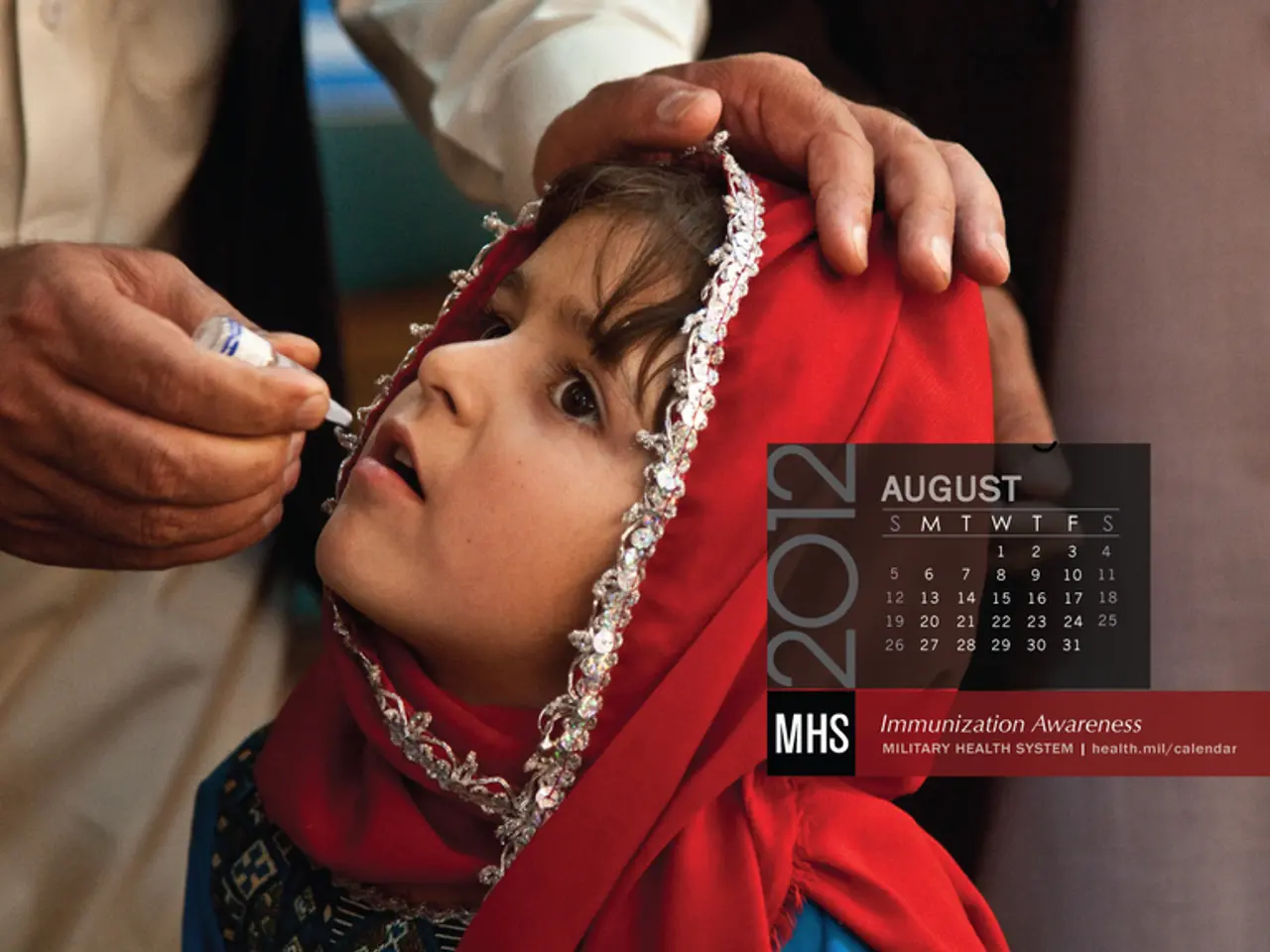Measles claims the lives of 357 Afghan children within six months, alarming UNICEF who issue a dire warning of an escalating crisis and an acute shortage of aid.
In the heart of Asia, Afghanistan is grappling with a severe measles outbreak that has claimed the lives of at least 357 children in the first half of 2025. According to UNICEF, 3.5 million children in the country are acutely malnourished, with 1.4 million at immediate risk of death.
The outbreak, exacerbated by weakened health infrastructure and population displacement, has seen over 74,800 suspected measles cases reported between January and June. Nearly 80% of the cases affected children under the age of five, a demographic particularly vulnerable to the contagious and airborne viral spread.
Amidst this crisis, healthcare facilities across many provinces have been closed due to funding cuts, reducing access to care for millions of people. This situation is further intensified by the influx of over 836,000 returnees since April, many in vulnerable conditions requiring urgent medical attention, including vaccinations to prevent measles and other diseases.
International efforts to combat the outbreak involve WHO-supported health teams providing emergency care and vaccinations at key border crossings and reception centers. By early July, nearly 198,000 vaccines, including those for measles, were administered with support from WHO and partners. However, urgent additional support is needed to maintain and expand healthcare services amidst the ongoing humanitarian challenges.
Afghanistan remains among the top countries affected by measles outbreaks regionally and globally in 2025. The situation is further complicated by the ongoing political unrest, with the Taliban accused of continuing its support for terrorist organizations like ISIS-K, identified as the "largest transnational terrorist threat" emanating from Afghan soil.
The U.S., which had contributed over $30 million to the UN's 2025 humanitarian response plan before the aid cutoff in April, has scaled down its engagement, limiting it to counterterrorism efforts and the repatriation of American citizens. This decision has left millions of Afghans without life-saving assistance, deepening the internal crisis and exposing the broader region to renewed instability.
The humanitarian crisis has had devastating impacts on vulnerable communities, according to the International Rescue Committee. UNICEF has appealed for $1.2 billion in funding for its 2025 operations, but only 51% of the required funds have been secured so far. By October, 9.5 million people are projected to be facing "crisis" or "emergency" levels of hunger.
Diplomatic efforts between the Taliban and UN officials have stalled, with the Taliban resisting adopting international norms in exchange for economic relief. This resistance has been stated as a reason why continued support from the U.S. is impossible. The stalled talks and the Taliban's continued support for terrorists have reinforced fears that Afghanistan could again become a launchpad for global terrorism.
The situation in Afghanistan is a stark reminder of the urgent need for global cooperation and support to address humanitarian crises and promote peace and stability.
- The ongoing measles outbreak in Afghanistan, exacerbated by weakened health infrastructure and population displacement, has sparked strong opinions about the importance of global health and humanitarian aid.
- A UNICEF report reveals that 3.5 million children in Afghanistan are acutely malnourished, making the crisis in health-and-wellness a major concern.
- Despite international efforts to combat the measles outbreak in Afghanistan, including emergency vaccinations and support from WHO and its partners, urgent additional funding is needed for the maintenance and expansion of healthcare services due to ongoing humanitarian challenges.
- While higher levels of funding are being appealed for in the general-news sector, political conflicts and accusations of support for war-and-conflicts, such as ISIS-K, are hindering progress in Afghanistan and intensifying concerns about peace and stability on the global stage.




